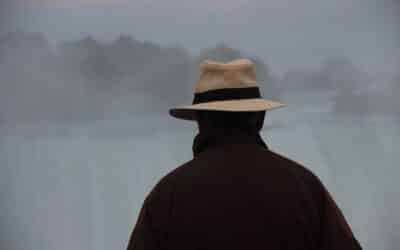
What is a Sleuth?
The world of sleuthing, an enthralling blend of intellect, intrigue, and indefatigable curiosity, has captured the collective imagination for ages. Sleuths, those cunning characters who unravel the knottiest of enigmas, have become synonymous with mystery and adventure.
This article dives into the essence of what makes a sleuth, exploring their evolution from the pages of dusty tomes to the glimmering screens of Hollywood.
Our journey begins in the gas-lit streets of Victorian England, where the likes of Arthur Conan Doyle’s Sherlock Holmes and Agatha Christie’s Hercule Poirot set the gold standard for fictional detectives. These characters, with their razor-sharp intellect and an eye for detail, laid the groundwork for the sleuth archetype. Holmes, with his deerstalker hat and pipe, and Poirot, with his meticulous methods and mustache, are more than just characters; they’re cultural icons.
Fast forward to the 20th century, where sleuths began to take on new forms and personalities. Miss Marple, another creation of Christie’s, defied gender norms by showcasing that a keen mind knows no age or gender. Her knack for solving crimes from her armchair, with a knitting needle in hand, challenged stereotypes and broadened the sleuthing landscape.
The allure of the sleuth soon found its way to the silver screen, giving a visual dimension to these enigmatic characters. Movies like “Chinatown” and “L.A. Confidential” showcased sleuths in a new light, trading tweed jackets for trench coats. These films added a layer of grit and realism to the detective genre, portraying a world where moral ambiguity reigns supreme.
In recent years, sleuths have evolved to reflect contemporary society. Television series like “True Detective” and “Mindhunter” offer a more nuanced look into the psyche of both the sleuth and the criminal. These modern iterations often focus on the psychological aspects of crime-solving, delving into the grey areas of morality and justice.
So, what ingredients make the perfect sleuth? First, an insatiable curiosity and a keen eye for detail. Sleuths often notice the unnoticed, piecing together clues invisible to the average eye. Second, intellect and reasoning. The ability to connect the dots, to see the larger picture from fragments of information, is crucial. Lastly, a dash of eccentricity. Many of the most memorable sleuths have quirks that set them apart, be it a penchant for opera or an addiction to caffeine.
A critical aspect of sleuthing is the moral compass guiding these characters. While some stick rigidly to the law, others operate in shades of grey, challenging our notions of right and wrong. This moral ambiguity adds depth to the sleuth character, making them relatable and human.
Today, the legacy of the sleuth lives on, not just in literature and film, but in popular culture. Video games like “L.A. Noire” and board games like Clue offer interactive sleuthing experiences, proving that the appeal of solving mysteries is universal. Podcasts and true crime series have also tapped into this fascination, blurring the lines between fiction and reality.
Adaptation has played a significant role in the evolution of the sleuth. Characters like Sam Spade, who first appeared in Dashiell Hammett’s novels, made a seamless transition to film, demonstrating the versatility of these characters. This cross-medium journey has kept the spirit of sleuthing alive, allowing each generation to reimagine these detectives in their own image.
The enduring appeal of the sleuth lies in their universal quest for truth. In a world riddled with uncertainties, sleuths offer a semblance of order and justice. They remind us that with enough perseverance and intellect, even the most convoluted mysteries can be unraveled.
As society evolves, so too will the archetype of the sleuth. Future sleuths might grapple with digital crimes in a cyberpunk setting or navigate a post-apocalyptic world. The possibilities are endless, but one thing is certain: the allure of the mystery-solver, the seeker of truths, will continue to captivate and inspire.
In sum, the sleuth remains a testament to the human spirit’s quest for knowledge and justice. From the foggy alleys of Victorian London to the digital landscapes of the future, they stand as beacons of intellect and determination, proving that no mystery is too great, no puzzle too complex, for the keen mind of a sleuth.
More Sleuth Features
The Timeless Appeal of Amateur Sleuths
Why We Love Amateur Sleuths
Sleuth Detectives
Sleuth detectives hold a special place in literature and screen adaptations
Amateur Sleuth Short Stories
The mysterious world of amateur sleuth short stories



